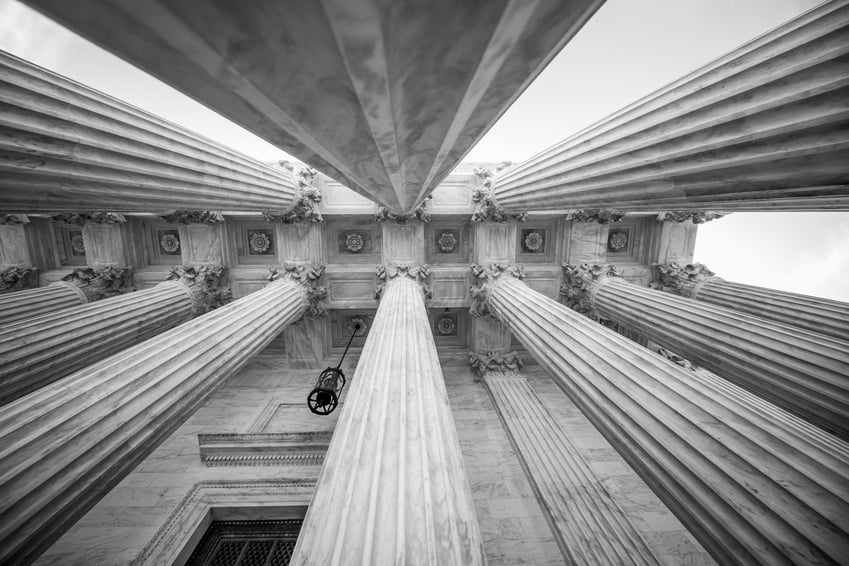In its June 20, 2016 ruling in RJR Nabisco, Inc. v. European Community, the U.S. Supreme Court settled a long-running debate on the extraterritorial application of the Racketeering Influenced and Corrupt Organizations Act (“RICO”). The Court held that, both civilly and criminally, RICO applies to conduct outside the United States only to the same extent as the statutes that criminalize the underlying acts that form a pattern of racketeering. The Court also held that, in a civil RICO action brought by private parties, the statute authorizes recovery only of damages suffered in the United States. By clarifying the extent of RICO’s extraterritorial reach, the decision affirms but also limits the risk that conduct outside the United States will lead to RICO liability.
Brief Overview of the RICO Statute
RICO was enacted to target organized crime by prohibiting (a) investing income derived from a pattern of racketeering activity in an enterprise which is engaged in, or the activities of which affect, interstate or foreign commerce; (b) acquiring or maintaining an interest in such an enterprise through a pattern of racketeering activity; (c) conducting such an enterprise’s affairs through a pattern of racketeering activity; and (d) conspiring to violate any of the other three prohibitions. Each prohibition requires a pattern of racketeering activity, which means the commission in a ten year period of more than one “predicate offense.” Predicate offenses include a broad range of conduct punishable under various U.S. federal and state laws, such as bribery (including FCPA violations), money laundering, and fraud. Criminally, RICO allows for up to 20 years of imprisonment, criminal fines, and forfeiture of the proceeds of the activity. Civilly, RICO provides private parties with a cause of action that may result in the award of treble damages and attorneys’ fees.
Origins of the RJR Nabisco Case
In 2000, the European Community and twenty-six of its member states filed a civil RICO lawsuit in the Eastern District of New York against the cigarette manufacturer RJR Nabisco (“RJR”). The plaintiffs alleged that RJR participated in a global scheme in association with organized crime groups relating to the smuggling of cigarettes. The plaintiffs further alleged that RJR violated RICO by engaging in a pattern of racketeering activity with predicate acts including money laundering, providing material support to foreign terrorist organizations, mail fraud, and wire fraud.
The plaintiffs claimed that they were injured by RJR’s conduct in various ways, including financial harm to state-owned cigarette businesses, lost tax revenue from black-market cigarette sales, harm to European financial institutions, and currency instability. However, the plaintiffs waived their initial claims that they suffered injuries in the United States.
The District Court for the Eastern District of New York granted RJR’s motion to dismiss on the grounds that RICO does not apply to racketeering activity occurring outside of the United States or to foreign RICO enterprises. The Second Circuit Court of Appeals reversed the District Court and held that RICO has the same extraterritorial reach as the statutes comprising the RICO predicate offenses, regardless of whether any injury is suffered in the United States. RJR appealed to the Supreme Court, which granted cert.
Limits on RICO’s Extraterritorial Reach
The Supreme Court reversed the Second Circuit Court of Appeals. Though it applied the presumption against extraterritoriality stated in its 2010 Morrison decision, the Supreme Court held that this presumption was overcome with respect to certain parts of RICO, but not others. Specifically, the Court ruled that RICO can apply extraterritorially to the extent that the statutes defining the alleged predicate offenses apply extraterritorially, thus affirming the decision of the Second Circuit Court of Appeals in this regard. However, the Court further held that the portion of the statute authorizing private lawsuits only allowed recovery of damages when a plaintiff could prove injury to its business or property in the United States. Because the plaintiffs had waived their allegations of damages suffered in the United States, the Supreme Court remanded the case with instructions to dismiss.
Implications of the Supreme Court Decision
On the criminal front, the Court’s confirmation that there is no blanket RICO liability or immunity for conduct occurring outside the United States makes clear that money laundering offenses, FCPA violations, and many other crimes remain valid predicate offenses even if they are committed entirely outside of the United States. On the civil front, the Supreme Court blunted RICO as a weapon against conduct occurring abroad, as that conduct must now cause an injury in the United States to form the basis of a claim. This could be particularly meaningful in the FCPA context, where civil litigants have resorted to RICO claims to address foreign bribery allegations in order to get around the fact that the FCPA does not provide a private right of action.



